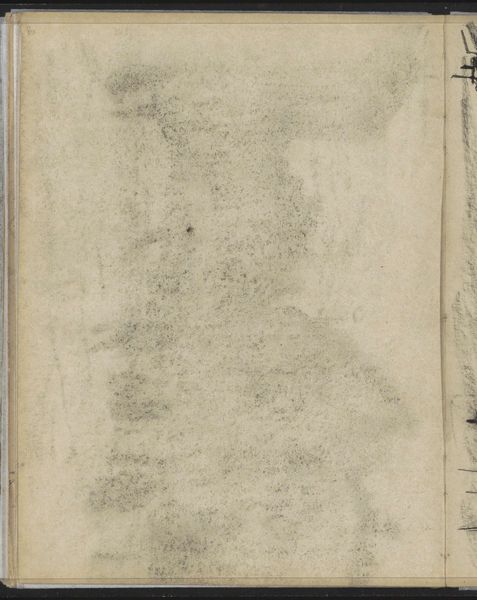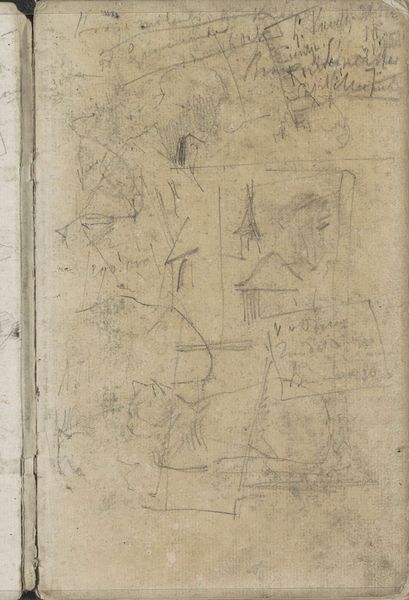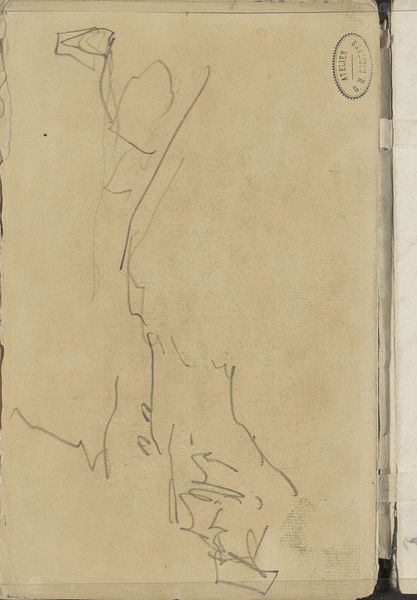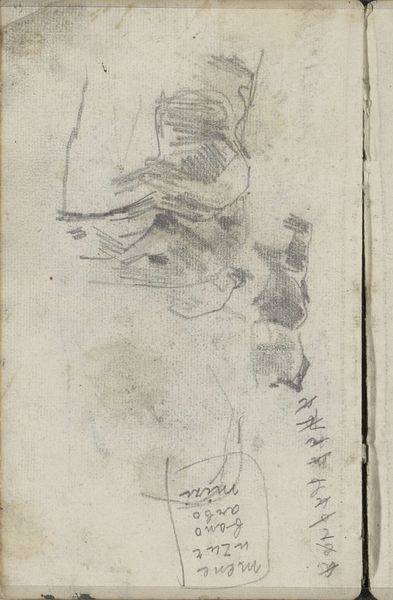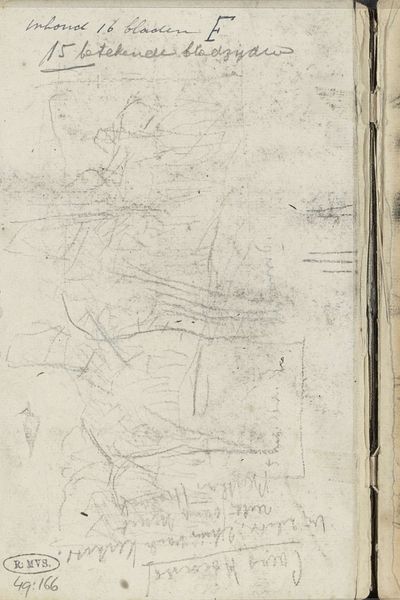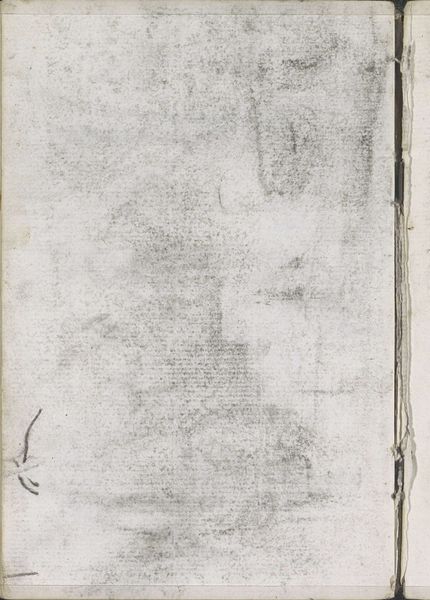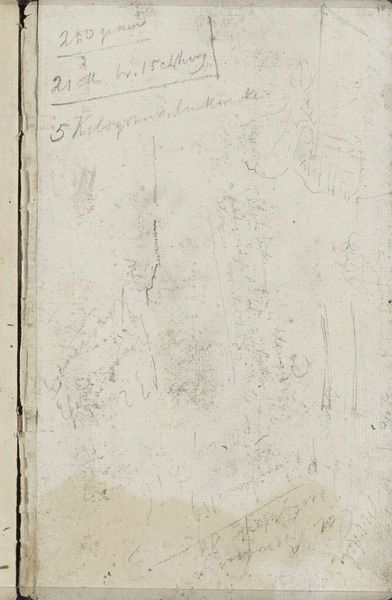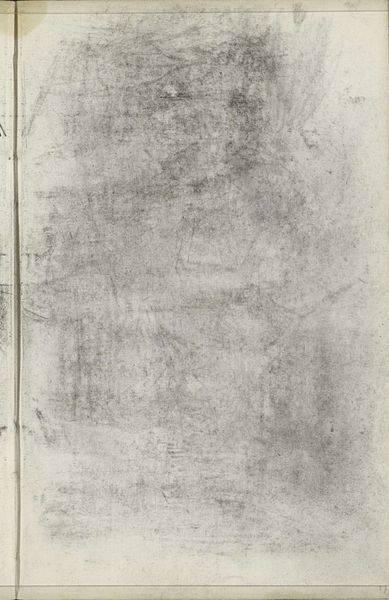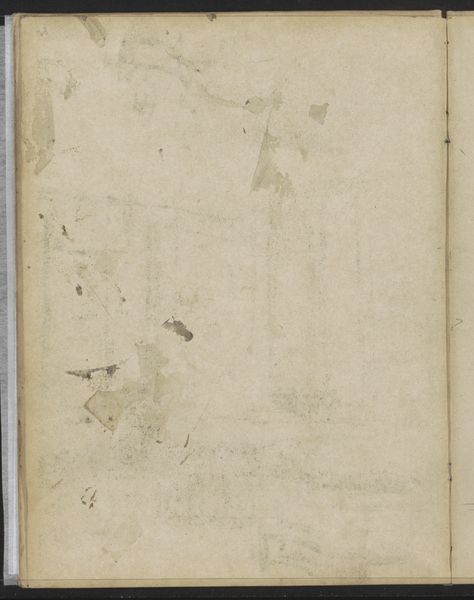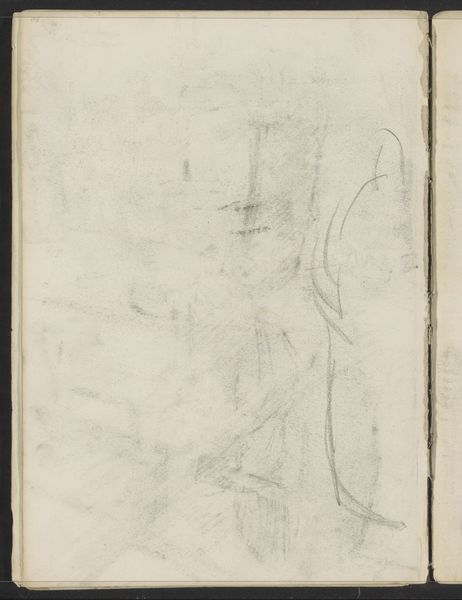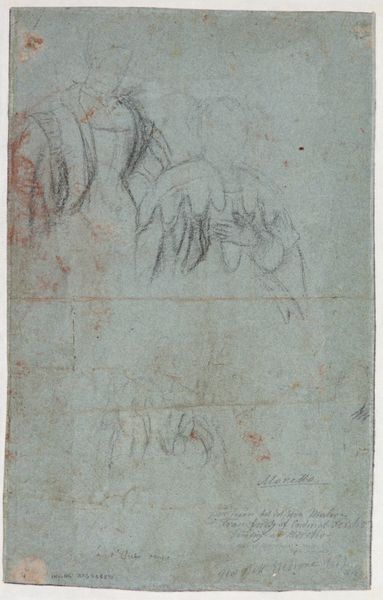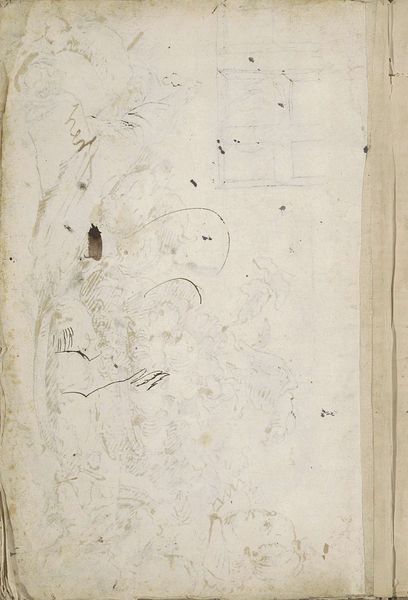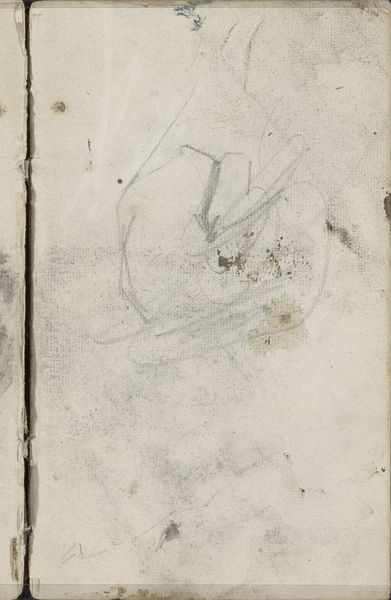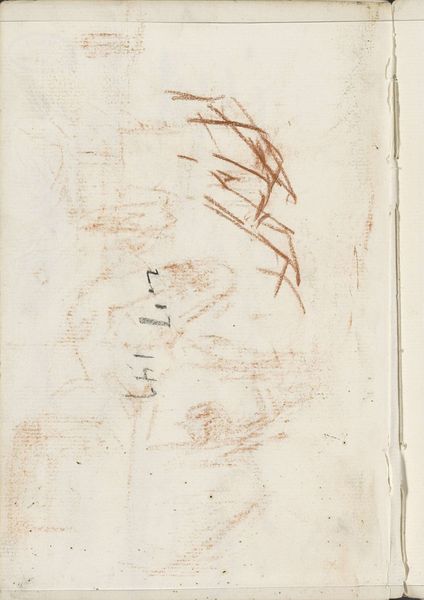
#
amateur sketch
#
aged paper
#
toned paper
#
light pencil work
#
pencil sketch
#
incomplete sketchy
#
personal sketchbook
#
watercolour bleed
#
sketchbook art
#
watercolor
Copyright: Rijks Museum: Open Domain
George Hendrik Breitner made this study page with graphite on paper sometime between 1875 and 1923. The effect is muted and ghostly, due to the artist’s direct engagement with the material. Graphite, a form of carbon, is a relatively soft mineral that leaves a mark when dragged across a surface. Breitner seems to have used it in a very direct way, perhaps even rubbing the graphite onto the page to create shadows and textures. The softness of the graphite allows for quick, expressive marks and erasures; you can see how he built up layers of tone and line to capture fleeting impressions. As the industrial revolution took hold, graphite pencils became readily available and affordable, democratizing the practice of drawing. Breitner, deeply interested in capturing everyday life, embraced this accessible medium for his studies. The immediacy and portability of graphite allowed him to sketch scenes and figures quickly, documenting the changing urban landscape around him. Consider this work and how it democratized the creative process, allowing artists to engage with their world in new ways.
Comments
No comments
Be the first to comment and join the conversation on the ultimate creative platform.
